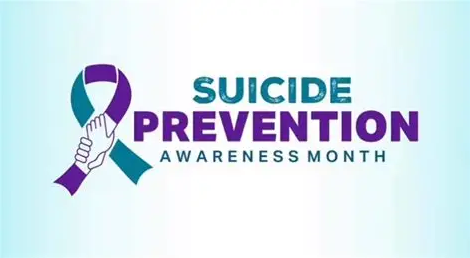September 12, 2025/Midnight
Erie, PA. — According to Active Minds, every year 1,100 college students die from suicide.
Mental health struggles are becoming more common. As diagnosis of anxiety, depression, and other disorders continue to rise, education and treatment have also become more common. The CDC reports that in the United States alone, during 2023 there was approximately one death by suicide every 11 minutes. That same year, The JED Foundation reports that suicide was the second largest cause of death for people ages 10-34. Mental health struggles have been a growing issue, with dramatic increases in young people who report facing mental or emotional challenges.
For many years, religious and cultural attitudes around mental health were often very closed, and suicide was a taboo subject. However, as psychology began to progress, societal attitudes around mental health started to change. Conversations about mental health disorders have become much more open and common in recent decades.
During the late 60s, the first suicide hotlines were created in both the U.S. and the U.K. The 80s began a rapid growth in organizations that aimed to prevent suicide. The American Foundation of Suicide Prevention was created in 1983, which supported research and education on mental health. Around this time, community efforts to destigmatize the conversation around suicide became increasingly common.
In the U.S., the Surgeon General formally called for action to prevent suicide in 1999, which turned suicide prevention into a public health matter. In 2003, the World Health Organization designated Sept. 10 as the international World Suicide Prevention Day.
Suicide Prevention Month is a relatively recent recognition. It aims to spread awareness about mental health, educating people and hopefully saving lives in the process. In 2008, the United States officially designated the month of September as National Suicide Prevention Awareness Month.
Mental health challenges are particularly impactful to young people, especially college students. However, at Gannon, there are several different clubs, organizations, and resources to help students that may be struggling with mental health or want to have open discussions about mental health.
Sept. 14 the organization Active Minds is placing 1,100 flags on Gannon’s AJ’s way to represent the number of college students each year that die from suicide. Active Minds is a national organization with a chapter at Gannon. They focus on mental health advocacy, education, and awareness. Their goal is to de-stigmatize the conversation surrounding mental health and allow college students to have open dialogue about any issues they face with mental health. Their first meeting of the semester is Monday, Sept. 15 at 6:30 in the Center for Advanced Engineering, room 104.
To learn about suicide prevention, or to seek help for mental health concerns, students can visit the Counselling and Psychological Center on the third floor of Beyer Hall, room 305. Students can make appointments, or visit the center between 8 a.m. and 4:30 p.m., Monday through Friday.
All Gannon students also have access to the Timely Care app. This allows students to utilize the TalkNow feature, which connects users to a counselor that can aid during a mental health crisis. The service is free, unlimited, and available 24/7.
For more information on the history of Suicide Prevention Month, visit this link.
Suicide Hotlines and Other Information
National Suicide Hotline
988
The Trevor Project
1-866-488-7386
Erie Crisis Services
814-456-2014
Gannon’s Counselling and Psychological Center
Gannon Police and Safety
814-871-7777
Timely Care








